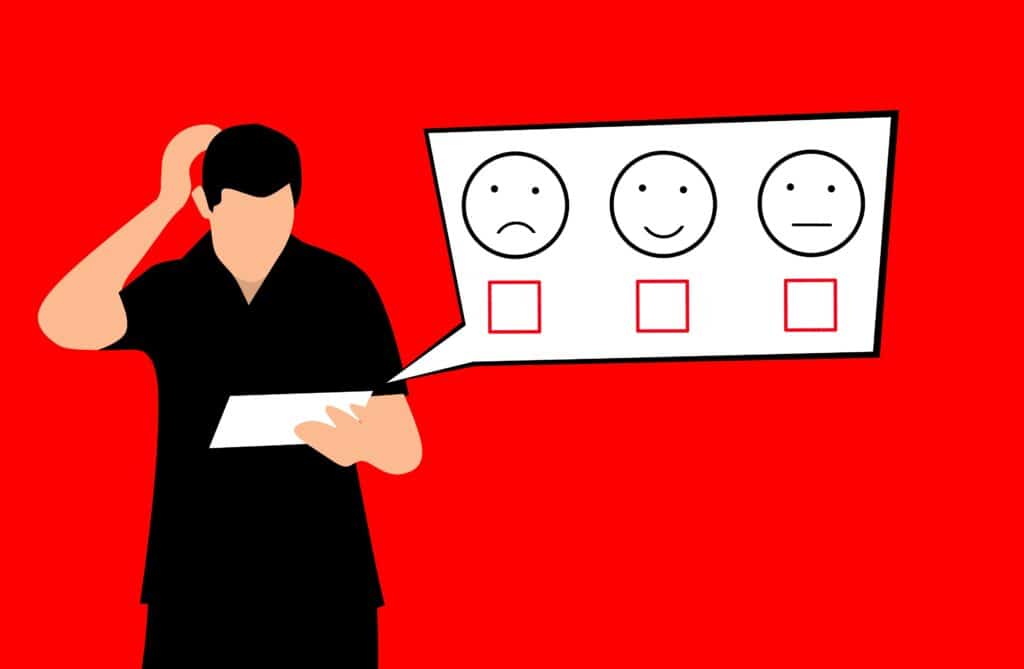How to manage your E-reputation
Do you want to create trust, reputation, and reliability online? It is a fact that your online reputation plays a vital role in the growth of your business. With the rise of IT networks and social media platforms flourishing, this fact has become even more prominent. Most of us do not pay attention to our social media accounts, posts, friends, and followers. The idea behind this notion is that social media engagement limits your educational or career development.
It is another fact that your prospective employers and education administrators have an eye on your reputation. According to hiring managers, they can get first-hand information about a candidate through social media profiles instead of CVs and resumes. It means your e-reputation can make or break. It would be best if you did not overlook your online reputation.
You may use your online presence for fun. But you need to be careful and create your festive look on social media and Google. It would help if you had awareness about your accounts and an online presence is essential for you. Google always prefers businesses that have an excellent personal online reputation. But how to manage my online reputation. Basic things about reputation management.
For evaluation purposes, we need to break down this task into parts and address each reputation building and control aspect. You should pay attention to your privacy settings so that your employer and admission offices do not access your erratic post and get the wrong information about you.

Online Reputation management
Your online reputation is the image you have created online, and ORM is all about improving or restoring your brand name. This is done by weakening or eliminating negative or bad material and replacing it with more positive and good material. It will improve the credibility and also the customers’ trust in your company. It would be best if you protect your reputation on social media sites, Google, search engines. Your online presence and your digital presence are significant for your business growth.
Why do we Need Online Reputation?
Online reputation is crucial for your company, your brand, and your business. For any brand or company, an increase in sales comes from trust & potential. If your online reputation is good, it will be great for your business, brand, company, and online reputation management. If you wish to increase the sale, make sure your brand and services better project positive reviews and footprints on the internet. Your investors, especially customers, depend heavily on Google reviews. Social Media and websites, and search engines are the new tools for increasing customer and sales. You always need to monitor your strategies, services, and online presence to present to your customers.
Your customer discusses their purchases with their friends, and when they have a problem, they will most likely spread the word about their experience of positive and negative reviews. Even from the investors’ point of view, now an investor does not know your company well enough and will often decide on information available to them on your personal website, your professional website, or google review. If you have a negative reputation online, it will show up. No one wants to be associated with a company with a negative reputation and reviews. That’s why Online reputation management is critical these days.
How much do People Trust Online Reviews?
- 97% of customers read online reviews for Local Businesses.
- 85% of Consumers trust online reviews.
- 68% of consumers don’t review when asked.
- 52% of consumers need at least a 4-star rating.
After knowing these stats, you can understand that your online reputation management is important for your business or brand.
Tools for Online Reputation Management
There are many top-class tools that you can use to check your online reputation. You need to use these tools to check online reviews, improve your online reputation, managing your online reputation. Tools like UberVU, Visible, Reputation Defender, Trackur, and Radian6. Like UberVU, automatically, all the brand’s social media data shows insights like influencers and stories that you leverage in real-time. They are expensive tools, but they will provide you free trails.
How to Deal With Negative Comments?
Negative and bad comments are not suitable for companies’ online reputations. To deal with them, follow the following steps. In the digital marketing world, monitoring your digital presence and negative reviews is very important. This is important for your online reputation management, your brand, your company, and your business.

Respond to all comments
If you want to be successful in search engine optimization (SEO) or the digital marketing world, you have to respond to all of the comments. Search Engines are essential to becoming popular on Google. You need to reply to the comments on social media accounts, social media sites, and even on google search engine reviews. Most businesses and companies respond to complaints that they believe to be genuine, but not all complaints.
Even in situations where the complaint is a social media troll, if you can respond with grace and neutrality, this will speak volumes of your business’s integrity to other social media users. The complaint should be responded to within 24 hours.
Think Before you React
Online reputation management is not that easy as it looks like. It would be best if you thought before ink. When negative reviews or complaints are posted, it is tempting to respond in a combative or indifferent manner. Instead, take some advice from other staff members of your team on how to respond. It is a part of a reputation management strategy that will protect your reputation online.
Don’t Make Assumptions
Sometimes, customer complaints may sound implausible because no one else has ever experienced that problem but don’t dismiss it until you have all the information and have checked with the relevant departments or distributors. You can also take help from reputation management companies or any reputation management services.
Try to Inject Some Playfulness in Your Response
Introducing humility shows your brand or business personality and can resound discredits very quickly. This will improve your online presence and your digital presence.
Acknowledge your Mistake
It also creates a bad impact on your business or your brand not to admit your mistakes. Make sure you acknowledge your mistake. It’s often said that denying a problem makes a bigger problem. Most people will be appeased with a direct and straightforward admission of wrongdoings and an apology.
Reputation evaluation
It would be best if you assessed your reputation. You need to check what your hiring managers and business partners may get about you on the internet. They may obtain information from:
- Search engines(SEO)
- Background fact check
- Online family history
- Social media sites & Social media accounts
- Cached data
- Digital interactions
- Search engines
It would be best if you determined what is in search engines about you. Seo, social media sites, and social media accounts like Facebook, Twitter, and Instagram will help to find out reviews or you may find facts about you through the following steps:
- Search for your name and discover what other people share about you.
- Search a few pages of search results
- Try variable search keywords like your name and city.
- Search about your email id
- You may narrow down the search with advanced options.
- Be more specific about what to find
- Try out reputation management companies
You may find negative information about you through the following websites and social media networks:
Social media accounts, social media sites, social media profiles, dating websites, retail shopping sites, message boards, blogs, comments and mentions, other web services

How to curate your e reputation
After identifying malicious content associated with your online presence, you should make a strategy to remove it. It is a trickier and a challenging take because some other accounts have posted these things about you that you cannot modify. You may start your work with some reputation management strategy through the identification of some significant roadblocks.
Social media challenges
If some other person tags you on social media sites and social media accounts with inappropriate images, posts, or comments, you may not erase it easily. Facebook has some tutorials about how to remove this. You may contact the account who tagged you and ask him to withdraw.
Some posts don’t be erased forthwith after deletion. For example, the Twitter post remains on record for some time. This is awkward, but you need to consider options for this purpose.
Search issues
If your name is common, it may be difficult to remove because you cannot differentiate yourself. There are some tools. For example, Lifehacker provides you with a domain with your first and last name. You may make your portfolio for hiring managers and admission offices here.
Google provides you guidance about removing your personal information. the best thing is to
Could you remove it from the source? But for this purpose, access to the webmaster is necessary.
Other measures
You may customize google search settings to get an insight into information others will post about you. You may track your information occasionally. You may use a search query box for this purpose.
Maintain reputation during studies
You may control your online reputation during your college life. It would be best if you were careful about submissions.
It would be best if you were cautious about posts that may spoil your career. You should post content with the utmost deliberation, and your posts should not tarnish your reputation in any sense.
- Choose your friends carefully.
- Don’t share information publically.
- Check photos
- Prefer your classmates for interaction
- Remove or hide inappropriate content
- Prefer LinkedIn like professional networks
- Maintaining e-reputation during the job hunt
- After graduation, you will go on the job hunt. Most employers hire candidates through social platforms like LinkedIn and Facebook. 9. You should have a clean online reputation on these networks, provide positive information about you in resumes, and maximize your professional clout.
- Create professional profiles
- You’re social demonstrates your credibility. If you do not have social media profiles, it will not help you. You need to have a better image here.
- Your social media presence boosts you and your professional image. Most firms look for candidates who can spark likes and shares. You may develop your serf in the following ways.
- Expand your friends and followers
- Post content that sparks following
- Update your content regularly
Here are a few resources for managing your professional e-reputation. These social media sites will help you to manage your online reputation, your brand reputation, and your company reputation. You may implement these resources for reputation building: Klout, Social mention, Google+ Ripples, Facebook insight, and Edger Checker
When you start checking about you! You can follow these strategies:
- Start interaction in groups and ages
- New connection regularly
- Posting questions that provoke community interaction
- Adding compelling content

Weightage of your online reputation in the hiring process
Your strong online presence is vital for job prospects. Most employers search for you online on social media, social media sites, and social media accounts.
They search for your interest in professionalism and industry involvement. If your content can impress your hiring managers, it may boost your prospects.
The websites you visit frequently
Most employers review your LinkedIn profiles and Facebook accounts. Some also have a look at your Twitter accounts. Your blogs and blog posts are also a factor in the hiring process. So you need to grow your credibility on these platforms.
Blunders in researching the credibility
- You make some common mistakes while creating your online profiles for business purposes; most people do not frequently update their information.
- You often provide more e than needed information.
- You need to update your information on a regular based.
- Don’t post that may provoke the wrong concept about your personality and professionalism.
Legal issues - Online information creates some legal issues too. But your employers work in close contact with legal advisors so that your privacy is not manipulated. Generally, employers don’t have access to your private information illegally.
- Challenging in recovering a negative reputation
- Search about your online reputation continues throughout your career as a professional or a business owner. You can set the google alerts for you. In this way, you may receive information when something is said about you online.
- If your hiring manager or employer asks the question about your negative information found on the internet, you should explain the circumstances n a positive way.
- If there is an image, you should shed light on your personality’s positive aspects.
Some rules to follow for maintaining an online reputation
- If you are active on social media. It could boost your career prospects. It would be best if you created relations with the people that have the same professional interests.
- Share your thoughts positively.
- Give exposure to your expertise and skills.
- Update your profile regularly on your job search boards
- Connect with likeminded people
- Follow people and blogs in your industry.
- You need to listen and respond to comments.
- You should prefer quality to quantity.
- Stay away from bad websites or strangers.
These are some of the top ways to boost your online reputation and enhance your festive look. Monitoring everything about your bad online reviews and correcting them will lead you to protect your reputation online. Online reviews are essential for your online reputation, your online presence, and your digital presence. There are many reputation management services and reputation management companies out there in the market to help you guys with your online reputation management.